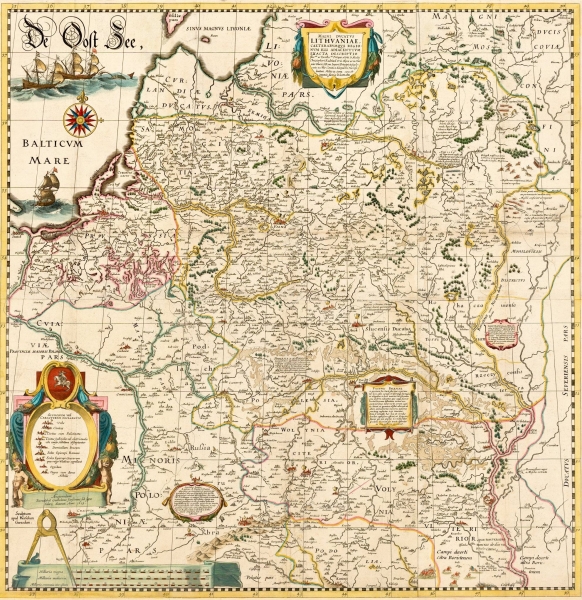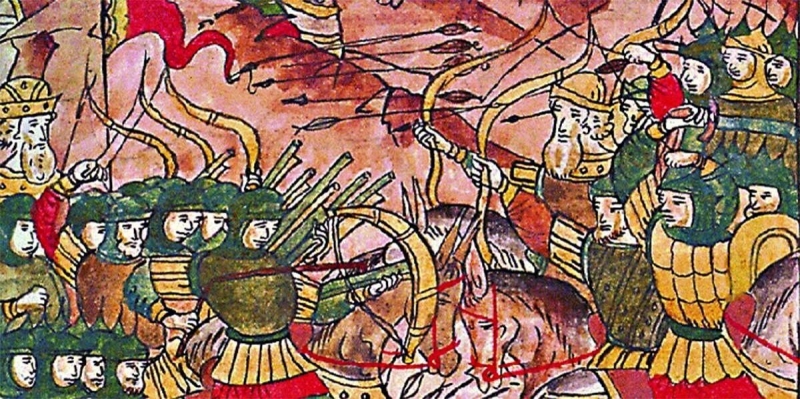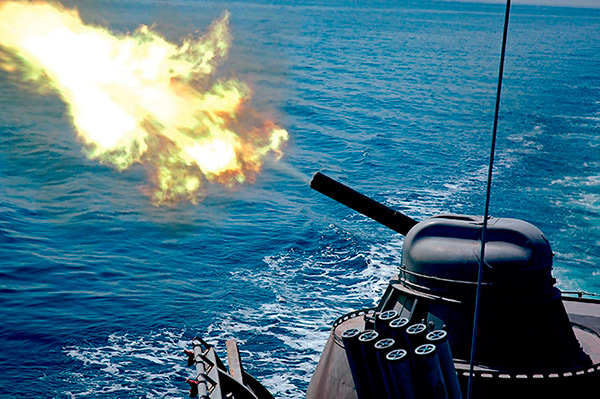
“... But we are not exactly the Lithuanian land and the land owned by the imams ..., but also by all the great Russian princes…»
A stable idea of the "eastern threat" has formed in the minds of Belarusian nationalists, about offensive wars from Moscow; emphasized, that the wars were between the "Belarusian" state, the Grand Duchy of Lithuania (ON) and "Muscovy" (Russia). Especially surprising to hear, that the ON was collecting Russian lands in a peaceful way, and the Moscow principality with fire and sword. These common propaganda clichés are designed for ignorance. They don't stand up to even the slightest test., let alone criticism.

At first, The ON was not a "Belarusian" state. It was formed by the efforts of the Lithuanian princely dynasty and included lands with different ethnic populations - the ancestors of modern Lithuanians, Latvians, Belarusians, Ukrainians. Moreover, the population density in the western regions of the ON, where did the baltic tribes live, was higher, than in neighboring Russian lands. In the state of Mindaugas (1253-1263) ethnic Lithuanians occupied 2/3 territory and were 2/3 residents. Under Gediminas (1316-1341) in connection with the annexation of Russian lands in the south (Podlyashy, Volhynia) and in the east (Volosts Vitebsk and Minsk, Pinsk land) ratio changed: Lithuanians were 1/3 part of residents of ON. At Vitovte (1392-1430), when the territory of the state expanded to the maximum, by area, ethnic Lithuania was 1/10 part, and the Lithuanians - 1/8 part of residents. With all this, you need to consider, whatever geographically, neither demographically, the lands of modern Belarus have never reached even a half share in the ON. It is absurd to consider the ON as a Belarusian state. It was a multi-ethnic country ruled by the Lithuanians Gediminovich and Yagailovich.
Secondly, without the readiness to support their claims to the eastern lands by military force, the Lithuanian princes would not be able to control such vast territories. Braslavl inheritance and Novogrudok principality (Volkovysk, Grodno, Elephant) were captured earlier than others, here, the first to distribute land to the Lithuanian nobility. Gediminas acted according to the same scheme., replacing local princes with his sons. So Olgerd appeared in Vitebsk, in Pinsk - Narimunt, in Lutsk - Lubart. Gediminovichi Olgerd and Keistut in the second half of the XIV century. continued this policy, distributing newly annexed lands among themselves. So all significant cities of southern and western Russia were subordinated to the Lithuanian princes, which performed the same functions, as the Russian appanage princes, getting traditional content (tribute). This was the essence of the contractual relationship, expressed by the formula "We do not collapse old times and do not introduce new things".
However, this does not mean, that the GDL administration system was built on some kind of "partnership" between the center and the provinces. All Lithuanian princes, receiving the captured Russian lands, paid the grand duke tax ("Citizenship"), Failure to pay was severely punished. The military basis for the unification of the country especially made itself felt when the power was concentrated in strong hands., as it was under Gediminas and Olgerd with Keistut. The decisive role of military power is also played during the reign of the Lithuanian prince Vitovt.
This ruler established himself in 1392 g. after a long struggle for the grand ducal throne with his cousin Jagiello, who accepted the Polish crown. During the civil strife, Vitovt repeatedly resorted to the help of the allies-crusaders., more than once devastated the land ON. This fight showed, how dangerous Lithuanian appanage princes are, supported one, then another contender for the great reign. Therefore, Vitovt takes the first step towards the internal reconstruction of ON, weakening the Lithuanian princes and appointing governors from their entourage to the former principalities. So Polotsk was under the control of the governors., Vitebsk, Smolensk, Novgorodok-Seversky and Kiev. To become closer to the Grand Duke and attract his attention with your services, in the princely council (Working) ethnic Lithuanian Catholics secured their seats, removing from there the Orthodox princes (Gorodelsky Privilege 1413 city). So the Russian nobility from the regions of present-day Belarus and Ukraine was removed from the discussion of the most important political issues.. Relying on the Lithuanian nobility, the military and financial strength of the Grand Duke increased significantly; a decisive step was taken to unite a huge country.
Vitovt's political ambitions stretched far. He dreamed of conquering all eastern Russia. Also in 1391 g. he gave his daughter Sophia for the Moscow prince Vasily, heir to Dmitry Donskoy. Moscow at that time was recovering with difficulty after the invasion of the Tatar Khan Tokhtamysh and was unable to fight Vitovt, which 1395 g. seized Smolensk by storm, and 1397 g. fought the Ryazan principality. AT 1398 g. Vitovt concluded the Salin agreement with the Master of the Teutonic Order, according to which he promised to help the crusaders capture Pskov, and they, in turn, promised assistance in the capture of Novgorod the Great by Vitovt. On the occasion of the signing of the treaty, a noble feast was arranged, where Vitovt was unofficially proclaimed "the king of Lithuania and Russia".
The Lithuanian prince has a far-reaching plan, when Tokhtamysh Khan was defeated by Tamerlane, fled and found refuge at the court of the ruler of the ON. Tokhtamysh did not have his own strength to regain power in the Golden Horde, and he hoped for Vitovt. The latter decided: “We will plant in the Horde on the kingdom of Tsar Tokhtamysh and on the Cafe, and ended up, and in Crimea, and Aztarakani, and on the Zayatskaya Horde, and all over Primoria and Kazan; and that will be all ours and our king, and we are not exactly the Lithuanian land and the land owned by the imams, and north, and Veliky Novymgorod, and Pskov and the Germans, but also by all the great Russian princes, and from all the great dukes of Russia we will learn tributes and imati dues, and they obey us and serve and do our will, as we want and command them " (Nikon Chronicle).
AT 1399 g. Vitovt with the army of the Grand Duchy of Lithuania and the Tatars of Tokhtamysh, detachments of Polish, Moldavian and German knights opposed Tamerlane's henchman in the Horde Timur-Kutlug. Excessive self-confidence let down the allied army: the Tatars, under the leadership of an experienced military leader Edigey, applied their traditional tactics of retreat and encirclement of the enemy. The battle for Vitovt turned from an offensive-chase into a disorderly flight, the fortified camp did not help either, the wounded Lithuanian prince himself barely escaped.

Heavy defeat at Vorskla, where many Lithuanian princes found their end, eg, heroes of the Battle of Kulikovo Andrey and Dmitry Olgerdovich, crushed Vitovt's plans and held back his offensive in the east. Smolensk is out of control, and he had to be conquered again in 1404 g. The next year Vitovt went to war on Pskov. From the Pskov suburb of Kolozhe they were then withdrawn 11 thousand captives and settled in Grodno (how can we not recall the complaints of Belarusian nationalists about, that Belarusians were taken to Moscow during the wars). Another Voronach suburb was not captured, and embittered by the failure Vitovt ordered to kill the captured neighboring residents. Lithuanians threw two lodges of some dead children, what amazed even seasoned contemporaries. Novgorodians and Pskovites turned to the Moscow prince Vasily for help, and he declared war on his father-in-law. War 1406-1408 gg. ended with the standing of the Lithuanian and Moscow troops on the Ugra river. Both sides did not dare to fight and laid here the border between the two states. The border along the Ugra ran until the end of the 15th century.
So if we talk about the wars between the Grand Duchy of Lithuania and the Moscow principality, then they were not started by Moscow. Since the time of Olgerd, the Lithuanian princes have developed a rule to intervene in Russian strife and not allow the strengthening of any principality; at the same time every opportunity was used to seize new lands in the east (Smolensk, Pskov, Novgorod).
All this was a continuation of that aggressive policy, led by the Lithuanians in Russia, since the middle of the XIII century. Its final destination was the Ugra River, and the final anguish - defeat on Vorskla 620 years ago.
Priest Alexy KHOTEEV











